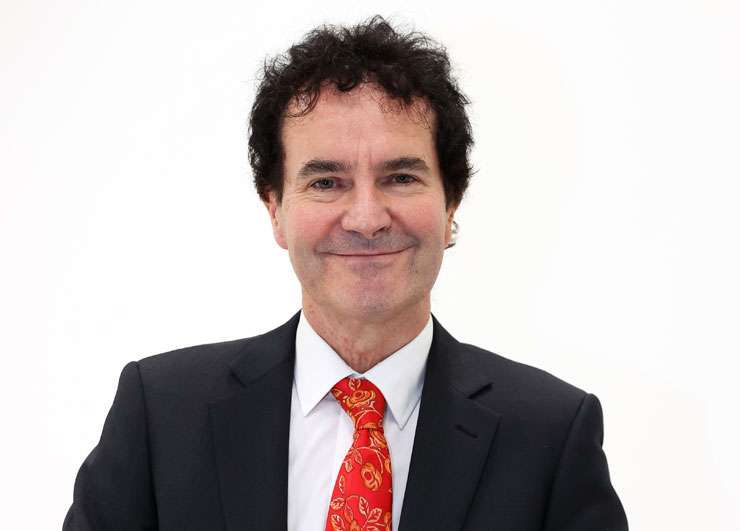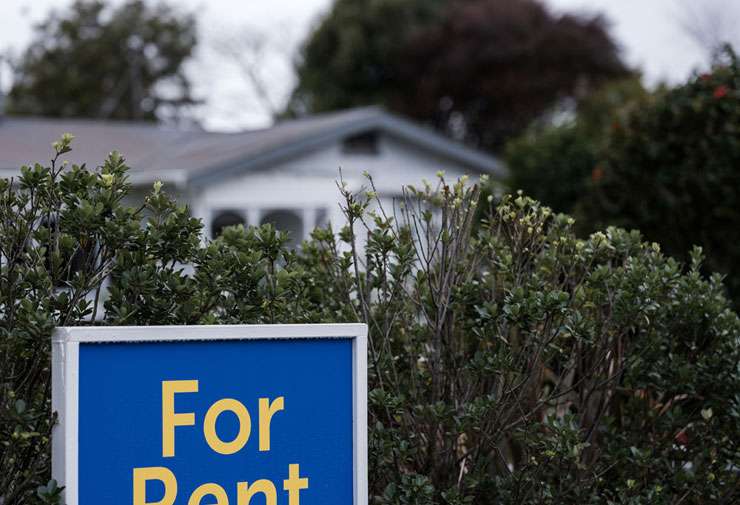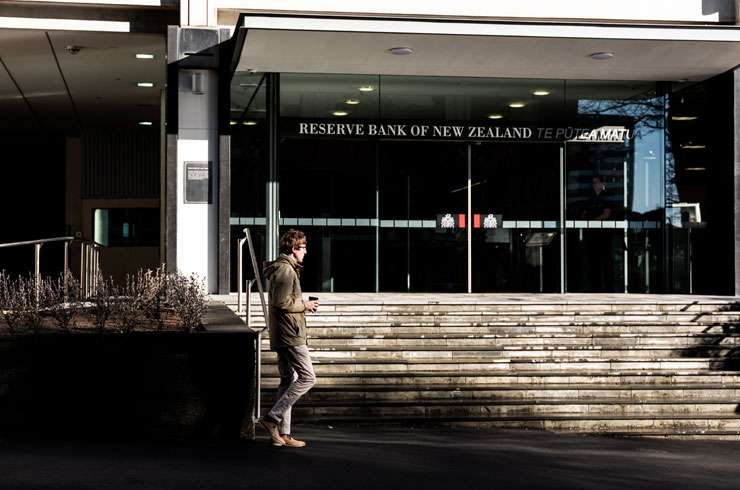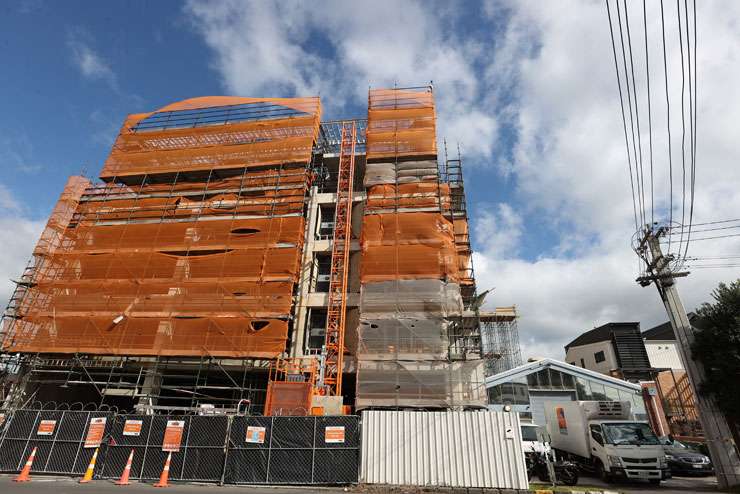Figures from OneRoof's data partner Valocity show first home buyers represented more than a third of new mortgage registrations nationwide in the three months to the end of September, stepping into the space left by investors.
The surge in buying activity comes amid a crunch in listing volumes, a rise in interest rates and upwards pressure on prices, with New Zealand's average property now more than $1 million.
So can the against-the-odds momentum be sustained?
Mortgage expert Jeff Royle thinks not, arguing that New Zealand has seen one too many nails in the coffin for first-home buyers.
Start your property search
“RIP first home buyers at over 80% LVR," says the iLender broker of 30 years experience. "Not the bank's fault; the blame lies squarely with the Reserve Bank and regulators trying to fix a problem that does not exist. They claim it's to stop reckless or high-risk lending. We have never had either of these in New Zealand.”
Royle says growing obstacles to first home ownership started in the mid-2010s and have escalated through 2020 and 2021 with rising house prices and increased regulation. Measures aimed to help or protect first-home buyers have in some cases backfired.
He adds: "My heart goes out to first home buyers - they are just screwed.”
Independent economist Tony Alexander believes many frustrated would-be property owners will up sticks and leave for Australia when Covid-19 restrictions ease.

Economist Tony Alexander: "A number of first-home buyers are going to decide that they'll be better off moving to Australia." Photo / Fiona Goodall
He expects the current level of first home buyer activity will fall. “I certainly wouldn't say RIP, but I do think we have seen the peak. The proportion of sales going to first-time buyers, and the combination of new credit rules and rising interest rates, means that it is going to become tougher for them," he says.
“I think a number of first-home buyers are going to decide that they'll be better off moving to Australia. They will get higher wages, lower cost of living and cheaper houses. So I think these high house prices will be one of the factors contributing to a net loss of Kiwis next year.”
The challenges facing first home buyers appear to be significant. OneRoof discussed with Royle and Alexander the factors that will have an impact on those trying to get into the market.
Rising rents
The current squeeze on first-home buyers started with rents rising, making it harder to save a deposit, says Royle. “It goes back to the previous government in producing the healthy homes standards, which were not a bad thing. But landlords had to spend significant sums of money bringing a property up to so-called standard and that meant that rents went up, because it’s a business, not a charity.
“This government then removed the tax deductibility on interest for property investors,” he says. “That forced mum and dad investors to sit up and say, ‘We've been renting our property out to these lovely people under-market. We can't do that anymore.'

Rising rents has put the squeeze on those saving for a deposit. Photo / Ted Baghurst
“So as a result of that rents have gone up by over 10 per cent in the last 12 months. That means your first-home buyer who's been renting can't save as much.”
CCCFA
“The new Credit Contracts and Consumer Finance Act rules have really tightened up lending to first-home buyers,” says Royle.
The CCCFA requires lenders to drill down into borrowers’ spending habits. “I saw an application declined because the (borrower) had a habit of having two flat whites a day. The bank’s assessor popped $200 a month into the servicing calculator and it created a fail,” says Royle.
“When I was without family and without a home a long time ago, I spent money on stupid things. And when I got a mortgage, I stopped.”
Speed breaks
From November 1 the Reserve Bank (RBNZ) has put speed limits on banks, reducing the percentage of lending to borrowers with less than 20 per cent deposit.
“About 75 per cent of low-deposit lending was going to first-home buyers,” says Alexander. “This latest change will hit first-home buyers more than any other group.”
Banks are now limited to 10 per cent of lending going to low-deposit buyers. Banks are being conservative and aren’t even lending up to their limits, says Royle. Most have cut the percentage of low-deposit loans to 5 per cent of their lending to avoid getting into trouble with the RBNZ.

The Reserve Bank has reduced the amount of lending banks can do to low-deposit buyers. Photo / Getty Images
With such little low-deposit lending available, first-home buyers are finding that if their bank says no they can’t get another bank to look at them, says Royle. “So what this has done is actually restrict choice. If your bank won't do it, another bank will not because they are adopting the stance of looking after their own customers.”
Rising prices
The OneRoof Valocity House Value Index shows New Zealand's average property value has risen 27.2 per cent in the last 12 months, from $827,000 to $1.052m. That jump means those saving for a deposit would have to find an extra $45,000 to keep with house price inflation. Wage growth hasn’t kept pace.
Even regional buyers are being priced out by rising house prices, thanks to many city dwellers moving to other parts of the country or buying investment properties there.
Rising interest rates
Fixed mortgage rates have risen between 1.3 to 1.7 per cent this year, but that’s just the start, says Alexander. “The low was 2.19 per cent. I think it will go above 5 per cent and I wouldn’t be surprised if it goes to 5.5 per cent.”
Debt to income ratios
The RBNZ is consulting on introducing debt-to-income restrictions, which would mean home buyers could borrow only a certain number of times their income. The ASB already does this for investors, and the BNZ was the first to apply this to all home buyers. It’s another way first-home buyers could find mortgages out of their reach.
Turning point?
It’s hard for first-home buyers, says Alexander, but there are some rays of hope on the horizon. First-home buyers need demand to pull back to give them a chance, although that could be a double-edged sword.
One of the issues driving prices higher has been the shortage of stock on the market. That will change, says Alexander. “Listings will improve soon as higher interest rates start chipping away at vendor expectations of still rapidly rising prices, and those unwilling to sell for fear of not being able to buy will start stepping forward.

New builds under construction in Auckland. Photo / Fiona Goodall
“(The) rise in listings will need to wait until overall buyer demand pulls back further,” says Alexander.
“Elements of that pullback are starting to appear at the coalface in response to rising interest rates and CCCFA-related examinations of income and expenses by banks leading to a lot more people not qualifying for a loan as large as they are seeking.
“Some fears are starting to be expressed regarding buyers of off-the-plan properties not being able to settle when the time comes through lack of finance, not lack of a job.”





















































































